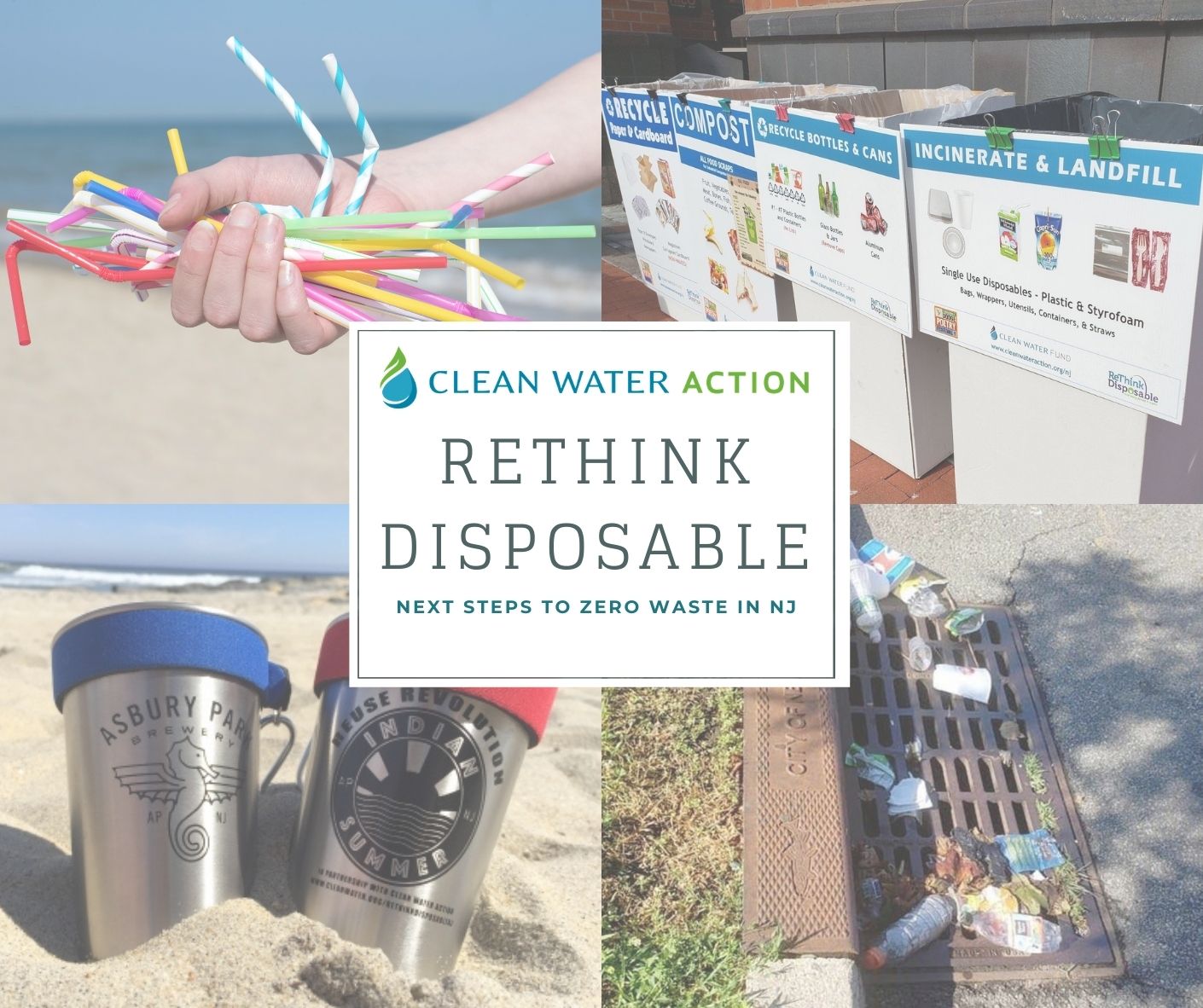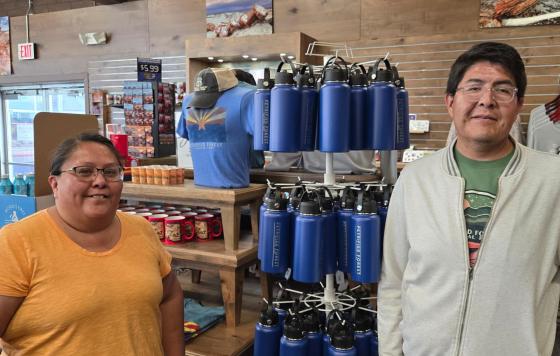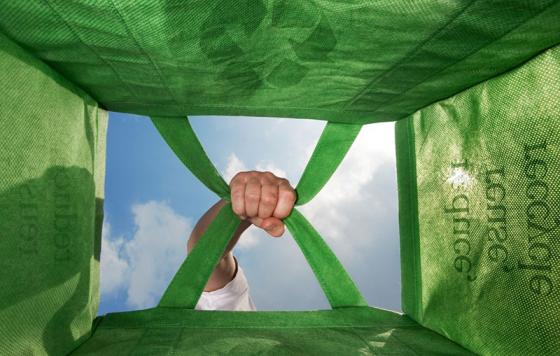
New Jersey recently passed a statewide law banning single-use carryout bags and polystyrene foam containers. This was an incredible victory for our water, health and environment and was made possible in part by over 50 towns and cities first enacting local zero waste ordinances to phase out plastic bags and other single-use disposables. This just goes to show how powerful local policies can be in creating larger change. In our next ReThink Disposable Blog Series, we will explore what else municipalities can do to move towards zero waste.
Part II: Next Steps for Local Zero Waste Policies
If you've already read Part I of this series, you'll know that waste associated with take-out orders including single-use plastic utensils, napkins, stirrers, and condiment packages can really pile up. While New Jersey's ban will require restaurants to serve single-use straws only when customers ask, these other items are not covered. This is where municipalities can step in, and a handful already have!
Sea Bright, Harrington Park, Stone Harbor, Long Branch, Cranford, and Maplewood have all included a variety of these accessory single-use items in their local ordinances - either mandating "by request" practices or banning them outright. Since these items are not covered by state law, towns are not preempted from adopting these local policies. This is a great next step for New Jersey municipalities to take! Take a look at the ordinances from Cranford and Maplewood for an idea of how to introduce this in your town.
Municipalities can also create a zero waste policy for big community events in town. If you've ever been to a street fair or festival, you'll know that after all the fun is over we leave a ton of waste behind in overflowing trash cans. The event organizers or the town pay to haul all that waste away to incinerators or landfill and do litter clean-up. Clean Water Action partners with many events like these to incorporate ReThink Disposable and zero waste practices. Now that we've shown you how it's done, we encourage municipalities to make these practices a standard part of all community events.
Here are some things a zero waste event ordinance can do:
- Require separate and clearly labeled bins for recyclables, compostables, and incinerator/landfill trash, and a plan for collection and sorting
- Prohibit the sale or distribution of bottled water to encourage self-serve water refill stations
- Require "by request" practices for accessory single-use disposables (utensils, napkins, stirrers, straws, and condiments)
- Set requirements for use of reusable beverage cups or baskets/trays for serving food
See this guide from San Francisco for more ideas.
Another way for municipalities to combat plastic pollution and climate change is through a sustainable procurement policy. Even though the plastics industry has such a strong influence on the economy, consumers can still shift demand toward zero waste and reuse. When municipal governments purchase supplies or services for their facilites, offices, schools, events, etc., they are acting as a bulk, high-volume buyer. When local governments make a purchase with the environment in mind, their dollars can go a long way in shifting the market, making it easier and more economically feasible for both businesses and individual consumers to follow suit.
Sustainable procurement policies can set standards to prioritize:
- Products with high post-consumer recycled content including paper, plastics, metals, asphalt, and concrete
- Reusable products and technologies or services that prevent waste
- Non-toxic products
- Green building and infrastructure
- Energy efficiency and electricity-fueled equipment
- Renewable energy sources
See Portland's sustainable procurement policy for more ideas.
Do you have additional ideas to move toward zero waste? We'd love to hear them - email mtoomey@cleanwater.org. And be sure to stay tuned for Part III in our series which will focus on what the State of New Jersey can do to continue the fight to end waste and plastic pollution.


